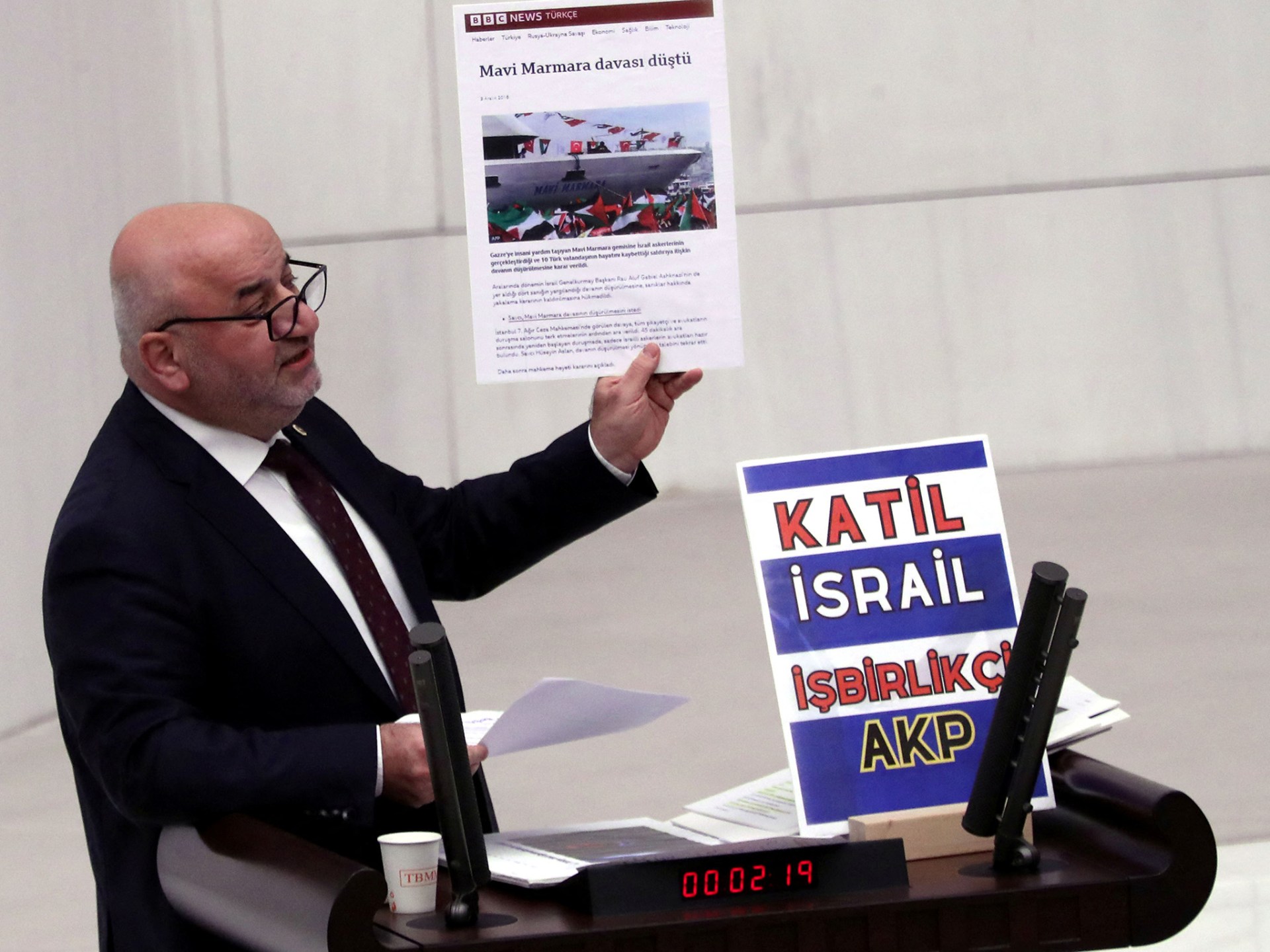Turkey raises $2.25bn in first bond deal since earthquake
Turkey has clinched its first international bond deal since last month’s earthquake as the government starts a massive effort to rebuild homes, businesses and critical infrastructure that were wrecked in the disaster.
The country on Thursday raised $2.25bn in dollar-denominated debt in its first bond deal on foreign markets since January, according to the finance ministry.
The February 6 earthquake caused $34bn in damage, according to the World Bank, though some local engineers and officials have estimated that the final reconstruction bill could be up to $100bn.
Economists expect Turkey to pay for the recovery partially through fundraising on debt markets and bilateral deals with international partners, although Thursday’s deal was not marketed as a reconstruction bond.
UK, US and other European investors accounted for 70 per cent of the bond deal, with 10 per cent going to those in the Middle East. Domestic investors scooped up 19 per cent of the issuance.
The bonds, which mature in March 2029, were sold on Thursday with a yield of 9.5 per cent, or 5.2 percentage points higher than US Treasuries. That compared favourably with the 6.2 percentage point “spread” Turkey paid on a $2.75bn dollar bond deal in January. The relatively high borrowing costs reflect Turkey’s speculative-grade credit rating.
Turkey has retained its access to international financing despite deep concerns over President Recep Tayyip Erdoğan’s management of the economy. Inflation exceeded 85 per cent last October as the central bank slashed interest rates in contrast to most other countries that raised them. The lira has tumbled in recent years as international investors eschew the market, reaching a record low of TL18.96 to the dollar on Thursday.
Investors are keeping close tabs on the campaign for the May 14 Turkish presidential election. It kicked into high gear on Monday when a coalition of six opposition parties picked Kemal Kılıçdaroğlu as its candidate to challenge Erdoğan, who has led the country for two decades.
The opposition alliance, known as the “table of six”, has agreed on dozens of policy proposals, including investor-friendly measures such as ensuring the central bank remains independent and focuses on inflation. Erdoğan, who is a longtime opponent of high interest rates, in effect controls monetary policy and had insisted on last year’s rate cuts.
Erdoğan has sustained intense criticism over the cost of living crisis, the government’s sometimes stuttering earthquake response and lacklustre compliance with building regulations that worsened the damage caused by the natural disaster. More than 45,000 people were killed by the earthquake in Turkey with thousands more dying in neighbouring Syria.
“The probability of regime change materialising is rising, which was true before the earthquakes, but more so now that crisis conditions have formed,” Wells Fargo economist Brendan McKenna told clients on Wednesday, while noting that his baseline expectation was still for Erdoğan to win.
The US bank said that if the opposition managed to score an upset, “the lira could experience one of the most sizeable rallies in modern history as an independent central bank gets restored and an orthodox monetary policy framework is implemented”.
Thursday’s debt deal was first reported by Bloomberg. Deutsche Bank, HSBC and JPMorgan were hired on Wednesday to manage the fundraising.




